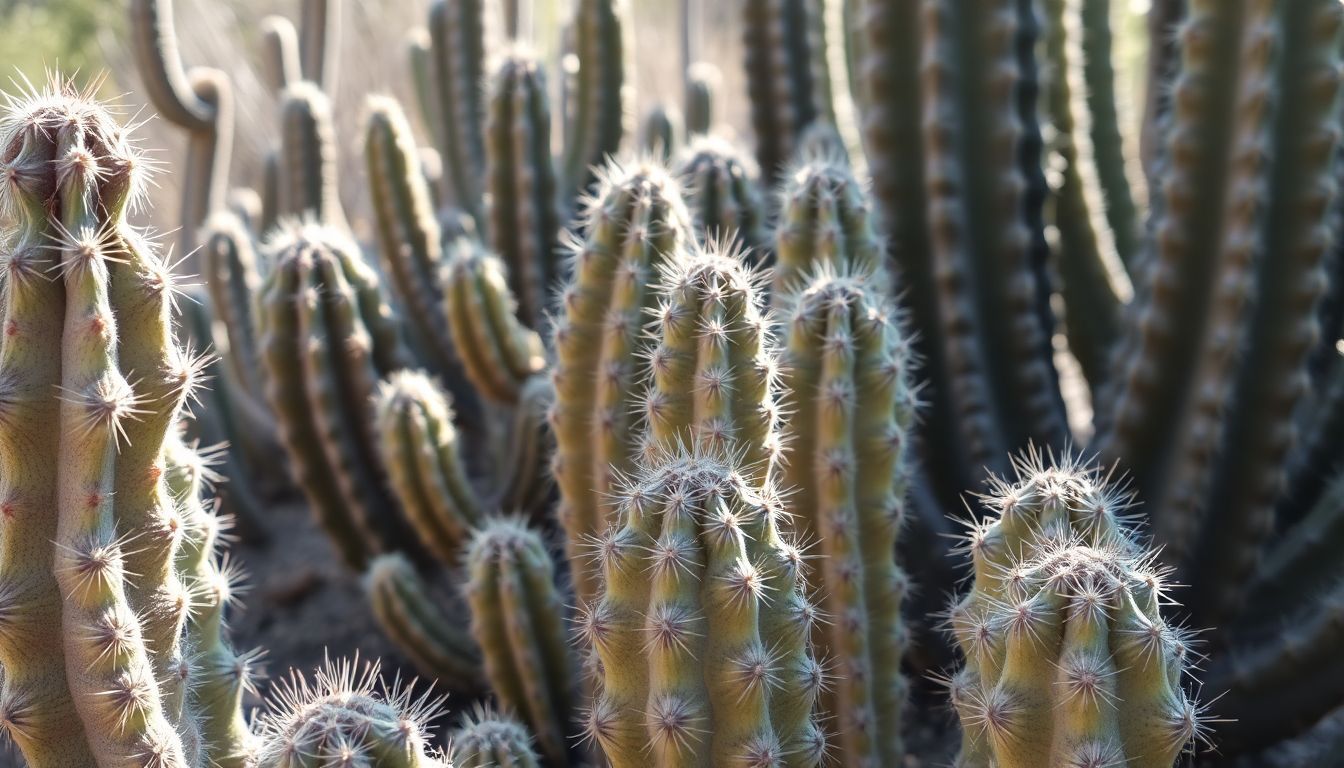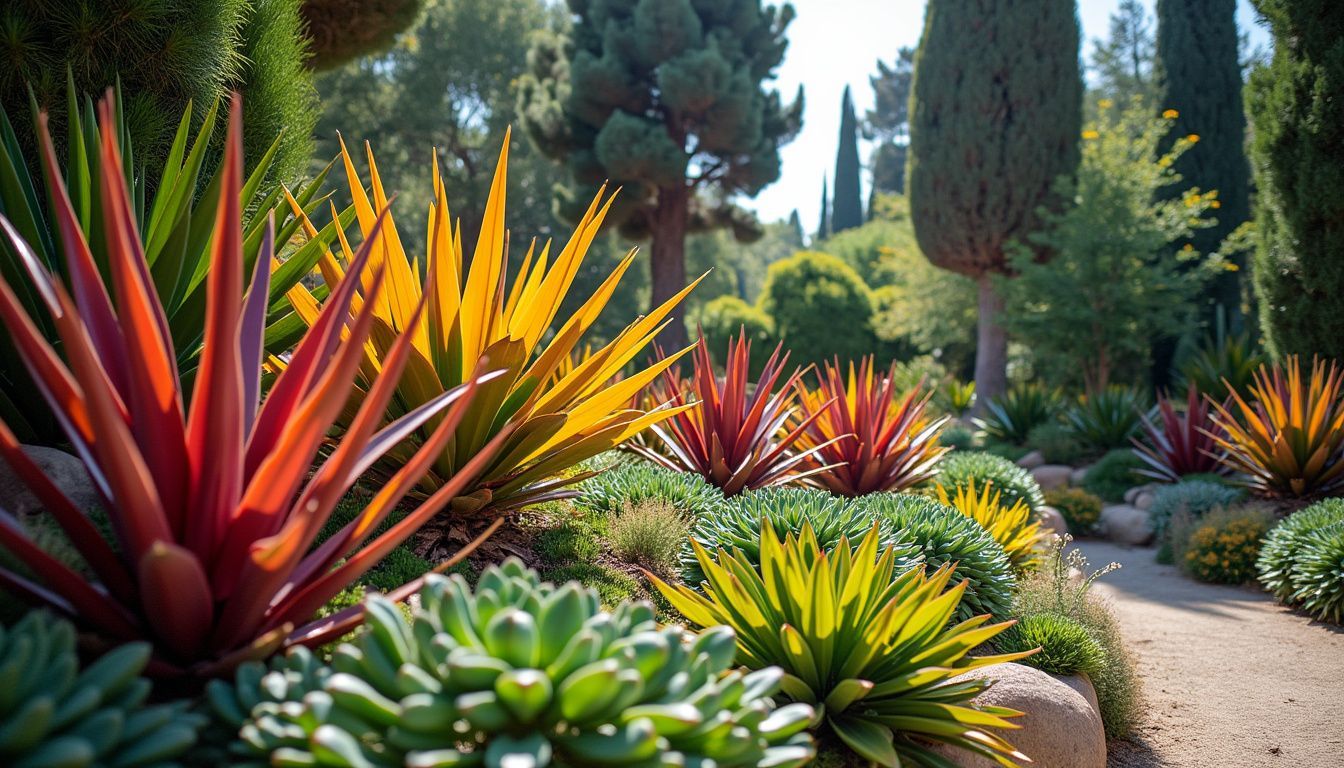Looking for a green escape? The Jerusalem Botanical Gardens is Israel’s biggest oasis, with over 6,000 plant species. This blog will guide you through its wonders, from lush displays to educational treasures.
Get ready to explore!
Unique Aspects of the Jerusalem Botanical Gardens

The Jerusalem Botanical Gardens feature distinctive geographic plant zones and an impressive collection of over 6,000 plant species, showcasing a global diversity.
Geographic plant zonesGeographic plant zones at the Jerusalem Botanical Gardens organize over 6,000 species into areas reflecting their natural habitats. These sections mirror regions such as South Africa, North America, Europe, and Australia.
This arrangement helps visitors understand where plants come from and how they grow in different parts of the world.
Explore the diversity of global flora arranged by their geographic origins.
Each zone displays plants that thrive in similar climates and conditions found in their native territories. For example, the Australian section showcases plant life unique to that continent’s diverse ecosystems.
Garden guests can stroll through varied landscapes without leaving Israel, making for an educational tour around the globe’s botanical bounty.
Over 6,000 plant species
The Jerusalem Botanical Gardens showcase a vast array of over 6,000 plant species from across the globe. These plants represent different regions such as South Africa, Europe, North America, and Australia.
Each region’s unique flora is carefully arranged to mimic natural environments. This global plant collection makes the garden an incredible spot for botany enthusiasts and researchers alike.
Visitors can marvel at the diversity of life forms within each phytogeographic section. The garden’s extensive range includes both common and rare species, offering a comprehensive view into the planet’s botanical diversity.
With every step through this green space, one discovers plants that thrive in various parts of the world, turning a stroll in the gardens into an international plant display adventure.
Visitor Experience at the Gardens
Explore the vibrant visitor experience at the Jerusalem Botanical Gardens, offering guided tours and seasonal exhibitions to enhance your exploration. Delight in a diverse range of plant species as you wander through this green space.
Guided tours availability
Visitors can enjoy private tours to fully experience the Jerusalem Botanical Gardens. These tours offer a close look at the garden’s vast collection, featuring over 6,000 plant species from around the world.
The guides provide insights into how the gardens arrange these plants by their geographic zones, such as South Africa and Australia. This personalized approach helps guests appreciate the diversity of the plant life and learn about different ecosystems.
The guided tours also highlight seasonal exhibitions and events that take place in the gardens. Guests will discover new blooms and activities with each visit, making every tour unique.
Seasonal exhibitions add color and variety to the experience, ensuring there’s always something new to see.
Seasonal exhibitions and events
The Jerusalem Botanical Gardens organizes a variety of seasonal exhibitions and events, providing an ever-changing experience for visitors to enjoy:
- Spring Festival: The gardens burst with vibrant colors, displaying an array of blooming flowers from around the world in March and April.
- Summer Concert Series: Visitors can indulge in live music performances amidst the lush greenery, offering a unique blend of nature and culture.
- Autumn Harvest Showcase: This event highlights the diverse range of fruits and vegetables grown within the gardens, celebrating the autumn bounty.
- Winter Wonderland: During the winter months, the gardens transform into a magical setting with festive decorations and seasonal plant displays.
- Holiday Workshops: The Gardens offer workshops where visitors can create their own floral arrangements or learn about traditional botanical uses during holiday seasons.
With each season, the Jerusalem Botanical Gardens presents a new collection of experiences, allowing visitors to admire nature’s beauty throughout the year.
Educational Opportunities
The gardens offer a range of educational opportunities, including collaboration with universities for research and various programs and workshops. Visitors can actively engage in horticultural learning experiences beyond just admiring the flora and fauna.
University research collaboration
The Jerusalem Botanical Gardens partners with universities for botanical research. The gardens host Israel’s most extensive collection of live plants, showcasing over 6,000 species from around the globe.
Moreover, there are approximately 10,000 plant species in total at the gardens. This exceptional diversity creates an ideal environment for university research collaborations focused on biodiversity and horticultural study.
The gardens’ association with Hebrew University is crucial as it supports their role in promoting academic engagement and advancing knowledge in the field of botany and ecological sciences.
In addition, the botanical garden’s extensive living collection not only provides a space for hands-on learning but also serves as a customized platform for university-led studies on constantly changing flora and fauna.
The collaboration offers students first-hand experiences essential for exploring intricate botanical intricacies and pursuing practical knowledge beyond theory.
Programs and workshops
- The gardens collaborate with renowned universities to offer specialized botanical research programs.
- These programs encompass a wide array of topics, from plant conservation to sustainability initiatives.
- Workshops are designed to provide a hands-on experience for participants, offering practical insights into horticultural practices.
- Visitors can participate in workshops that explore the intricacies of regional plant arrangements and their role in biodiversity conservation.
- Horticultural workshops are carefully crafted to provide comprehensive knowledge about various plant species and their conservation status.
- Customized workshops also concentrate on ever-changing horticultural trends and best practices in botanical research.
- Participants gain first-hand experience through these customized programs, immersing themselves in the world of international plant display management and care.
- The university collaborations not only facilitate theoretical learning but also offer substantial practical exposure to the field of botany and horticulture, providing unparalleled insights into rare plant species and their maintenance.
Horticultural Highlights
The conservatory collections at the Jerusalem Botanical Gardens showcase an extensive array of plant species from around the world. Within these collections, visitors can marvel at a captivating bonsai tree exhibition, offering a unique and visually stunning insight into the artistry of horticulture.
Conservatory collections
The conservatory at the Jerusalem Botanical Gardens houses a diverse range of plant species. It is home to an extensive collection of tropical and subtropical plants, including rare and exotic orchids, palms, ferns, and other botanical wonders from around the world.
The conservatory also serves as an educational space for visitors to learn about biodiversity and conservation efforts. With its carefully curated displays, the conservatory provides a unique horticultural experience for enthusiasts and researchers alike.
The conservatory features over 3,000 plant species from various geographic regions, offering visitors an immersive journey through different climatic zones. This includes a wide array of epiphytes, succulents, bromeliads, and carnivorous plants that thrive in specialized environments within the conservatory’s controlled conditions.
The collection is thoughtfully arranged to showcase plant adaptations and ecological relationships while highlighting the importance of preserving global plant diversity.
Bonsai tree exhibition
The bonsai tree exhibition at the Jerusalem Botanical Gardens presents a captivating collection of carefully cultivated miniature trees. This unique display includes over 250 bonsai trees, each expertly pruned and shaped, providing an intriguing insight into the world of horticultural artistry.
The exhibition highlights the Gardens’ dedication to preserving botanical diversity and educating visitors about this ancient Japanese tradition, making it a vital component of any horticultural exploration.
Planning Your Visit
Plan your visit to the Jerusalem Botanical Gardens by checking admission details and hours of operation. Explore the green space and horticultural diversity offered in this nature park by joining guided garden tours.
Admission details
To help you plan your visit to the Jerusalem Botanical Gardens, here are the admission details summarized in a table format:
| Detail | Description |
|---|---|
| Location | Jerusalem Botanical Gardens, southeast corner of the Hebrew University’s Givat Ram campus. |
| Species | Over 6,000 plant species from around the world. |
| Acres | Approximately 30 acres, making it the largest botanical garden in Israel. |
| Sections | Plants are arranged in sections based on geographic regions such as South Africa, Europe, North America, and Australia. |
| Tours | Private tours are available for visitors. |
| Events | The gardens host weddings and various events throughout the year. |
| Map | A map is available for visitors to navigate the expansive grounds. |
This table provides essential details for anyone planning to visit the Jerusalem Botanical Gardens.
Hours of operation
The Jerusalem Botanical Gardens is open to visitors from Sunday to Thursday, between 9:00 AM and 5:00 PM, and on Fridays until 2:00 PM. It’s important to note that the gardens are closed on Saturdays due to observance of the Sabbath.
The gardens provide a tranquil and informative experience for visitors during its operational hours.
Admission details can be found on the official website, alongside information about seasonal exhibitions, guided tours availability, and event schedules. For those planning an exploration of this horticultural haven brimming with over 6,000 diverse plant species from around the world in an idyllic green space spanning approximately 30 acres, it’s advisable to check the official hours of operation when planning your visit.
Conclusion
In conclusion, the Jerusalem Botanical Gardens provide a captivating exploration of plant diversity. Visitors can set out on guided tours and marvel at over 6,000 plant species from around the world.
The gardens offer an enriching experience for nature enthusiasts and those interested in horticultural displays. With its vast collection and educational opportunities, a visit to these gardens is an immersive journey into the world of botany.
For another unique and enriching experience in Jerusalem, consider exploring the historical Temple Mount.

